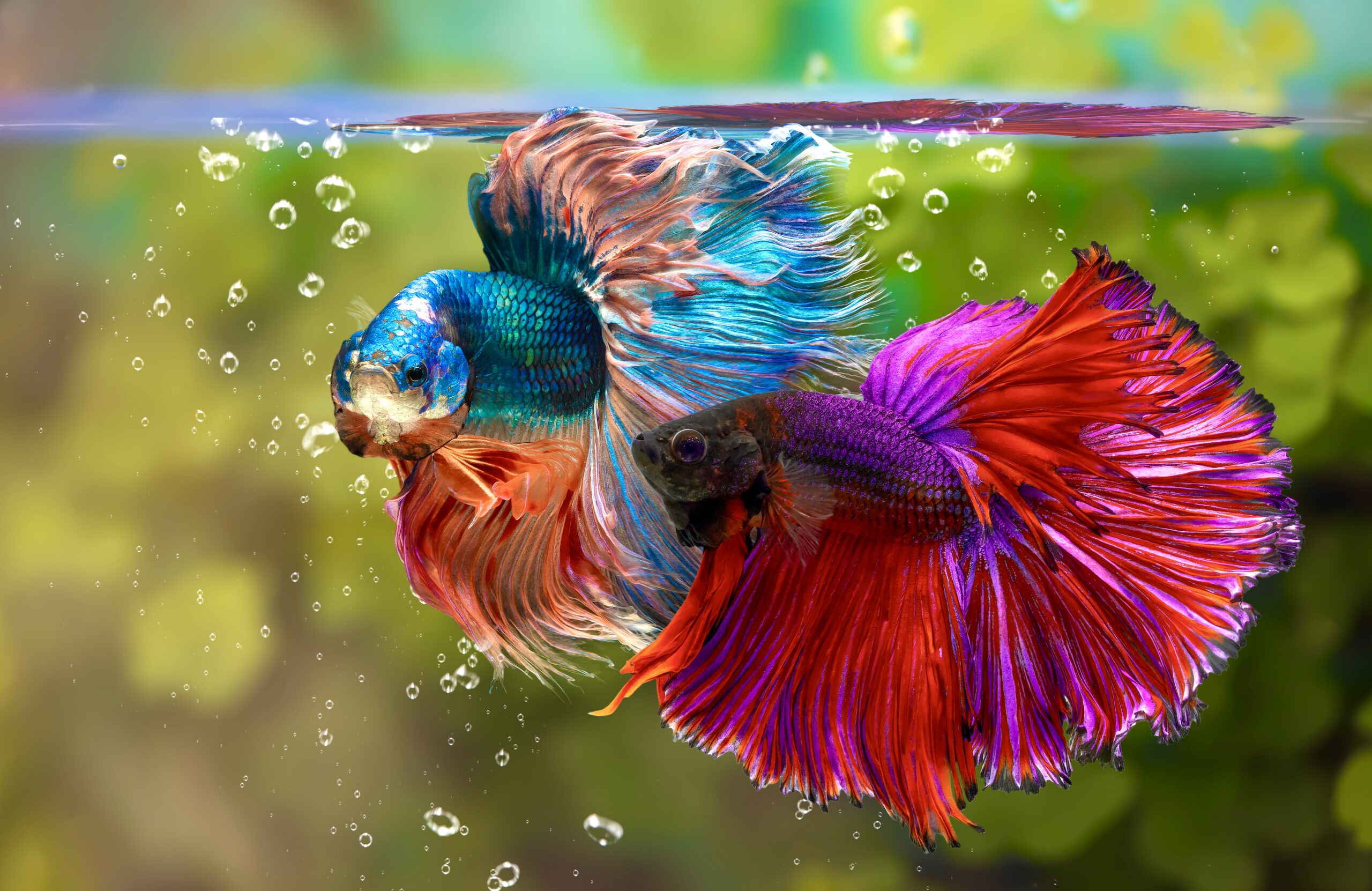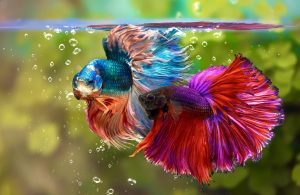12 Ways to Help Betta Fish Live Longer


When properly cared for, Betta fish live 2-5 years. Some say the oldest betta fish lived up to ten years! Most betta owners can’t anticipate that, but with some luck and careful choices, your betta may live 5 years or more.
This post will discuss 12 techniques to make your betta fish live longer, healthier, and happier. I can’t guarantee your fish will live for a certain period. What I can tell is that these recommendations can help you give your betta the best chance of live as long as possible.
Many factors cause betta fish death. Some things are out of our hands, and even if you do everything perfectly, your betta may die sooner than you expect. But human activities directly affect a fish’s lifespan and quality of life.
You may help your betta live longer by:
1. Select the Aquarium
One common misconception is that betta fish enjoy and flourish in small aquariums. This is untrue. Betta fish, unlike most other fish, can thrive in tiny, dirty pools of water. But it doesn’t make it the best place for them. Bettas, like other fish, need area to swim and explore.
a tank of 5 gallons or more for a single fish A gallon is better. Bowls and tiny tanks pollute too rapidly and lack other conveniences. Give your betta a decent home if you want him to live long.
2. Proper Water Temperature
Betchas are tropical fish. So the water in bowls and unheated tanks is often too cold for them. The water should be between 75 and 80 degrees, with 78 being optimal.
Even while bettas can live at colder temperatures, keeping them in unsuitable conditions causes ongoing stress. Stress causes sickness, which causes mortality.
3. Filter must be used
A filter helps keep aquarium water clean. While I wouldn’t call it a “must-have” in a betta tank, having live plants and changing the water often can only help.
Chemicals and trash from betta tanks can be reduced through biological filtration and mechanical filtration (chemical filtration).
4. Feed Correct Foods
Feed your betta pellets according to the guidelines. They will consume standard tropical fish flakes, but it is recommended to use betta-specific food. Bettas eat meat, thus their meal is heavier in protein.
Live and frozen meals can be used as treats. Consider foods like:
- Bloodworms
- Daphnia
- Tuberculi
- Shrimps
- Shrimps
- Moth Larvae
5. Don’t Overfeed
If I had to guess, I’d say overfeeding is the leading cause of premature fish death. The stomach of a betta is the size of an eye. Uneaten food decays and fouls the water. Whatever enters fish must out. Overstuffed fish produce more waste in their aquariums.
Overfeeding causes illnesses in bettas, some due to dirty water, some because to physiological difficulties. If this troubles you, you may schedule a weekly fasting day for your fish.
6. Maintain Tank Maintenance
Overfeeding causes filthy water and poor tank conditions. Setting up and adhering to a regular aquarium cleaning program can help. Include:
- Water changes
- Algae removal
- Grit vacuuming
- Bi-annual thorough cleans
The frequency and specific methods you utilize will depend on your tank size, live plants, and fish. Weekly 30% water changes and gravel cleaning are recommended for single bettas in 5-gallon tanks with filters.
7. Water Test
Even if you do all the right things, how do you know your water is safe for your betta? Only a freshwater testing kit can properly test it. There are several alternatives. I prefer the API Freshwater Master Test Kit since it is easy to use, accurate, and long lasting.
The optimal water parameters are:
- Nitrates: < 20
- Nitrites: 0
- Ammonia: 0
- pH: 7.0
Keeping an eye on ammonia levels and other concerns can help keep your betta’s tank water safe.
8. Use Safe Decor
Betta fish have long, flowing fins, therefore we must be careful while picking tank decor. Infected fins and scales can lead to death.
If you can get live plants, do so. If you must have artificial, avoid sharp edges that might shred fins.
So do caves and other embellishments. Your betta needs a place to hide. Creating a little cave from stones or other natural materials is ideal. If not, make sure the hiding spot’s entrance doesn’t grab your fish’s fins.
9. Safe Betta Handling
Your betta fish should never need to be removed from his tank. If you must remove him from the room, do so with caution. Net him to avoid damaging his fins. Instead, use an aquarium-safe container to remove him.
Put the container in a safe area and cover it with a lid without covering the water surface or sealing it. Why use a lid? Bettas can leap!
10. Keep a Tank Lid
Jumping bettas are an excellent reason to have a sturdy tank cover. Most fishkeepers ultimately find a cherished fish on the floor next to their tank. Prevent it if you can!
Then put him back in the tank as soon as you can. Bettas are anabantids, which means they can breathe air above the water when needed, giving them an advantage over most fish.
11. Wisely Choose Tank Mates
Betta fish are best kept in single-species tanks. Though many wish to keep them with other fish. That does happen occasionally. Your “fighting fish” won’t attack every other fish in the aquarium. In fact, betta fish are more likely to be picked on than to be the aggressor.
Adding a betta to a communal tank requires constant monitoring and removal if something goes wrong. Have a plan B. If you’re serious about it, here’s an article about keeping betta fish with tank mates.
12. Buy Fish from Reliable Suppliers
This one I kept for last, but I should have put it first. So I’m assuming most people reading this already have one. If not, this is vital: a healthy betta fish has a far better chance of living a long life.
Avoid businesses that maintain dozens of bettas in tiny glasses. Avoid stores that also offer lawnmowers and detergent. Shopkeepers that have Betta fish on hand can tell you how long they’ve been there. Preferably one owned by a fisherman you can chat to.
This not only increases your chances of receiving a healthy fish, but it is also more ethical.
Petstup is an official seller of the many well-known pets brands, focused on improving the lives of pets, pet parents and our partners. We proudly offer a large variety of pet nutrition products and supplies competitively priced for dogs, cats, reptiles, fish, birds and small animals. Petstup is your one stop shop for all your pet’s needs. All our products are authentic, and pass all mandatory United States standards and veterinary practices. We run several warehouses across the United States to serve you better and faster.




















